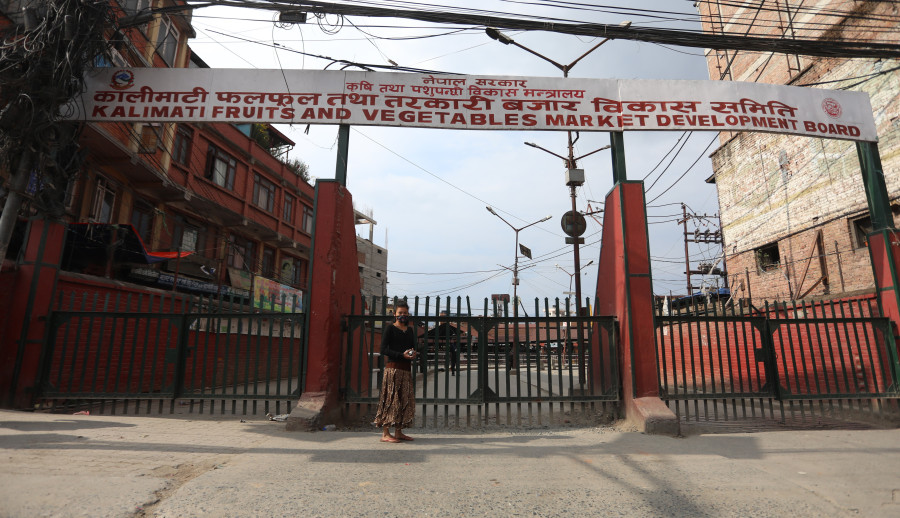Valley
Vegetables become scarce and costly as transporters stay away due to virus fears
Prices have increased by up to 200 percent, according to the Kalimati Fruits and Vegetables Market Development Board.
Krishana Prasain
Retail prices of vegetables have tripled over a week following a contraction in supply as transporters stay away due to virus fears.
Fresh produce like tomato small and big, potato, cabbage, radish, French bean, sword bean, bitter gourd, pointed gourd, squash, balsam apple, green vegetable, capsicum and coriander green have become dearer by up to 200 percent, according to the retail price index of the Kalimati Fruits and Vegetables Market Development Board.
Binaya Shrestha, deputy director of the board, said that the wholesale price of vegetables had increased slightly as shipments slowed. Prices likely swelled further when the products reached the retail market.
The number of transporters has also declined due to the fear of Covid-19, leading to a drop in supply, he added.
The price of tomato rose sharply to Rs95 per kg on Friday from Rs55 last week. Green vegetables jumped threefold to Rs75 per kg from Rs25 a week ago. The price of cabbage also increased to Rs45 per kg, a jump of 28 percent.
Automobiles have been banned from the roads following the lockdown order, but the government has made an exception for vehicles carrying vegetables.
Agro product traders and even farmers are afraid to come out of their homes as the government has not provided any protective gear for their safety. For this reason, supply has been disrupted, said an official at the board.
Customers have been allowed to visit the vegetable market only from 2 to 7 am for the past three days, according to Shrestha. But it is open to vegetable suppliers all day, he said.
“If we keep the market open all day, it is sure to be crowded with vegetable sellers and buyers. So we close the market at 7 in the morning to comply with the social distancing directive.”
Shrestha added that the market received 603 tonnes of vegetables on Thursday and 280 tonnes till noon on Friday. Shipments amount to 800-850 tonnes daily during normal times. There is no change in vegetable consumption patterns, he said.
Deliveries at Kathmandu's second major produce bazaar, Balkhu Agriculture and Vegetable Market, have dropped by 60 percent, said administrator Resham Tamang.
At the same time, demand has grown with many valley dwellers staying away from meat. This has pushed up prices, said Tamang. Sales at the market averaged 600-650 tonnes daily during ordinary times.
Prem Lal Maharjan, president of the National Consumer Forum, said that this was a difficult time for everyone, and hiking prices of essentials to profit from the situation is the same as committing a crime.
The general people whose life has been made hard by the virus threat are being hit with a double whammy when vegetable prices increase threefold.
As market inspection is not possible at this time, the government should conduct awareness programmes and pressurise traders to comply with the law. “People are being overcharged for green vegetables,” he said.
According to Shrestha, the Kalimati market sources fresh vegetables from neighbouring districts like Kabhre, Makwanpur, Dhading, Chitwan and Sindhupalchok and imports tomato, potato and onion come from India.




 14.24°C Kathmandu
14.24°C Kathmandu














